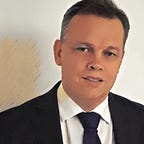In the 1970s, Karl Weick [1], an American organisational theorist, introduced the concept of “sensemaking” into organisational studies.
He explored how people try to make sense of organisations and how organisations themselves try to make sense of their environment.
Weick paid particular attention to questions of how we frame & act in conditions of ambiguity and uncertainty (the emergent ).
This shift in thinking about decision-making in conditions of uncertainty has rapidly become a central skill for the 21st Century.
As the rate of technological, social, environmental and economic change accelerates, we need to build plausible maps of the shifting fitness landscape and test these maps through exploration and discovery.
A process of continual learning.
Repeatedly reflecting & refining these maps, re-testing our assumptions, our hypothesis and models of the world again & again over time.
By having a better grasp of what we perceive to be occurring, we are better placed to respond to and navigate the challenges that emerge.
A higher fidelity of contextual understanding and a sharper focus in our search for Ground Truths.
Sensemaking, Uncertainty and Emergence
In 1961 at the age of 33, US Fighter Pilot John Boyd [2] gave a series of briefings on a strategic tool that he had developed called the OODA Loop [3] — Observe, Orient, Decide & Act — that could be used in military strategy to make decisions in environments of extreme uncertainty.
Boyd hypothesised that all intelligent organisms and organisations undergo a continuous cycle of interaction with their environment which he deconstructed into four interrelated overlapping processes.
The tool not only revolutionised military strategy but also provided a universal framework for embodied decision-making in environments of high uncertainty.
Sensemaking and Technology
Through sensemaking, Tim O’Reilly — technology entrepreneur and the author of WTF? What’s the Future and Why it’s Up to Us? — has brought a sense of coherence to the interplay between technology and humanity.
He describes his approach as “map-making [10]” — a skill dating back to Ancient Greece [11].
Map-making requires understanding the underlying assumptions and narratives that we, as humans and communities, shape.
Through this process, he raises core questions around the long-term sustainability of various digital platform business models and the almost universal adoption of algorithms in Modern Society.
A Verstand.
Challenging whether these assumptions, narratives and orthodoxies are really aligned with human flourishing.
Through questioning, new possibilities and pathways emerge relating to our relationship with technology.
Sensemaking and the Human Condition
Sensemaking extends far beyond digital or technology.
Christian Madsbjerg, in his book — Sensemaking: The Power of the Humanities in the Age of Algorithms [12] — explores the practice through the prism of human’s basic need for meaning.
Harvard Business Review, in reviewing the book, was quoted as saying:
“Madsberg argues that unless companies take pains to understand the human beings represented in their data sets, they risk losing touch with the markets they’re serving. He says the deep cultural knowledge business need comes not from numbers-driven market research but from a humanities-driven study of texts, languages, and people”…
Sensemaking — a core skill of the 21st Century
“The more I know, the more I realise I know nothing”…
— Socrates
More than ever, we require the empathy, cognitive flexibility and curiosity to embrace seeing the world from a range of alternative perspectives and the humility to recognise that the more we learn, the more we begin to realise how little we know of the complex systems we all inhabit[13].
Sensemaking is a core skill that enables us to embrace the emergent.
Developing our capacity to navigate the unknown.
Footnotes:
[1] Karl Weick — https://en.wikipedia.org/wiki/Karl_E._Weick
[2] John Boyd — https://en.wikipedia.org/wiki/John_Boyd_(military_strategist)
[3] OODA Loop — https://taylorpearson.me/ooda-loop/
[4] Some thoughts on the Fourth Industrial Revolution — https://www.linkedin.com/pulse/some-thoughts-fourth-industrial-revolution-leadership-richard-schutte/
[5]The future by its very nature is uncertain — https://www.linkedin.com/pulse/future-its-very-nature-uncertain-richard-schutte/
[6] No organisation is an island — https://www.linkedin.com/pulse/organisation-island-richard-schutte/
[7] The urgent shift required towards Ecosystem Leadership — https://www.linkedin.com/pulse/urgent-shift-required-towards-ecosystem-leadership-richard-schutte/
[8] https://www.linkedin.com/pulse/age-disruption-what-your-north-star-richard-schutte/
[9] 21 Lessons for the 21st Century — https://www.wired.co.uk/article/yuval-noah-harari-extract-21-lessons-for-the-21st-century
[10] Mapping the Future — https://www.soonishpodcast.org/episodes/2017/10/24/202-mapping-the-future-with-tim-oreilly
[11] Cartography — https://en.wikipedia.org/wiki/Cartography
[12] Sensemaking — https://www.redassociates.com/sensemaking/
[13] How much I know — http://ritholtz.com/2018/04/how-much-i-know/
[I] Andrew Moore — https://player.fm/series/recode-decode-hosted-by-kara-swisher-2321036/andrew-moore-dean-of-carnegie-mellons-school-of-computer-science
.
